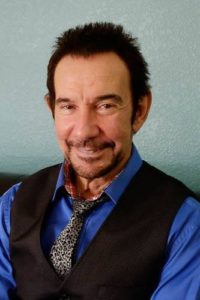“Hearing loss is not a harmless condition to be ignored or left untreated. It has tremendous impact on your life, and if left untreated, it can have serious emotional, (cognitive) and social consequences.” (Dr. Serge Kochkin, 2005).
Many people are aware Corvallis has a consumer education group for people who are hard of hearing. This group has met monthly since September 1988 and brings the latest scientific information to the community regarding hearing loss and hearing aids. Meetings are free to the public and take place on the second Thursday of each month from 3:30 to 5 p.m. at Corvallis Good Samaritan Hospital.
At past meetings we have discussed important research findings from Johns Hopkins Medical University, Louisiana State University Health Science Center, University of California San Francisco Medical School, Walter Reed Medical Center and the Better Hearing Institute. Many attendees at these meetings were surprised to learn the following information about hearing loss:
- Frank Linn and his colleagues at Johns Hopkins Medical University have shown “Compared with volunteers with normal hearing, those with mild, moderate, and severe hearing loss had twofold, threefold, and fivefold, respectively, the risk of developing dementia over time. The more hearing loss they had, the higher their likelihood of developing the memory-robbing disease.” Dr. Linn further noted, “Hearing loss is a major determinant of cognitive impairment even after other risk factors such as diabetes and heart disease are factored out.”
- Raymond Hurley at Louisiana State University Health Science Center has shown that protracted auditory deprivation resulting from hearing loss results in a significant decrease in speech understanding ability. In personal communication with Dr. Hurley he stated this decrease in speech understanding is likely related to degradation of the upper auditory pathways. In his discussion of this data, Dr. James Jerger, Editor of the Journal of the American Academy of Audiology noted that when it comes to residual hearing we are seeing a “use it or lose it” phenomenon.
- From the non-profit Better Hearing Institute in Washington D. C., Executive Director Dr. Serge Kochkin notes “The average amount of income lost by working people who don’t get hearing aids ranges from $1,000 a year (for those with mild hearing loss) to $12,000 a year (for those with profound hearing loss).” This finding was supported by comments from several hard of hearing attendees at our monthly consumer-education meetings. Specifically, those with master’s degrees in rehabilitation counseling of the deaf reported it is amply documented in the literature that those with significant hearing impairment are either under-employed or unemployed.
- Also from the Better Hearing Institute, and supported by separate data from Walter Reed Medical Center “six out of 10 patients experience minor to major relief of tinnitus (ear noise) when wearing hearing aids.” To date, hearing aids appear to be the most successful treatment for this condition affecting millions of Americans.
- From Dr. Robert Sweetow at the University of California San Francisco Medical School recent findings on hearing loss in those over age 65 show that age adversely affects speech understanding beyond what would be expected based on the hearing loss alone. Sweetow believes the physiological basis for this change has to do with decreased numbers of neural interconnections in the aging brain and diffusion of activity in the auditory area of the brain.
For 23 years hard of hearing panel members at our monthly consumer-education meetings have encouraged people to take action when they believe they have a hearing loss. That message is now supported by data published in respected medical journals.

Ron Leavitt, Au.D.
Upon completion of his bachelor’s and master’s degrees at one of the nation’s top-rated Audiology programs at University of Arizona, Ron Leavitt, Au.D., began publishing scientific articles and text books on hearing aids, earmold acoustics, noise induced hearing loss, hearing science and assistive listening technology. He received his doctorate in Audiology from Arizona School of Health Sciences.
You can click the link below for more information on the services we provide. Call 541-754-1377 today and let’s get started finding you better hearing!
Our Services!